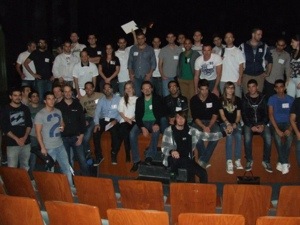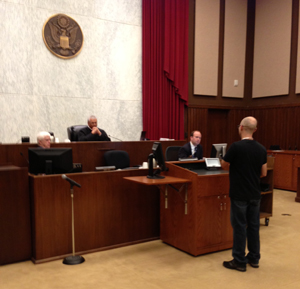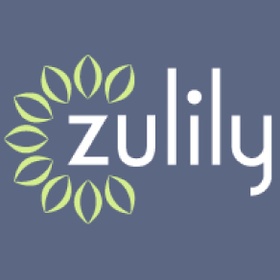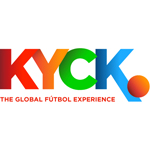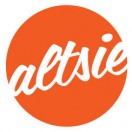 Editor’s note: We covered Altsie, a Minneapolis startup that helped promote and drive independent films and local commerce around the films. During that time we got to know Lucas Rayala, the startups founder. A few weeks back Rayala announced that he was shutting down Altsie and shared his thoughts on it with TechCrunch. Rayala wanted to give other startup founders an inside look at a startup that “didn’t quite work out”.
Editor’s note: We covered Altsie, a Minneapolis startup that helped promote and drive independent films and local commerce around the films. During that time we got to know Lucas Rayala, the startups founder. A few weeks back Rayala announced that he was shutting down Altsie and shared his thoughts on it with TechCrunch. Rayala wanted to give other startup founders an inside look at a startup that “didn’t quite work out”.
His insightful report is very valuable to any startup founder and we will be publishing the report in four parts over the next two weeks. Anyone that feels this information is mission critical and would like the entire report in a downloadable format can simply email startups@nibletz.com and we will gladly send it to you.
Overview:
What’s Altsie?
Altsie was a new way to go to the movies. Altsie partnered with hip neighborhood businesses across the country to create alternative screening venues and bring customers a new, exciting theater experience. Using some web 2.0 magic, businesses could, in minutes, set up a profile and schedule show times through our site. Altsie’s vision was to disrupt the old Hollywood theater model; with the help of overnight shipping, we had the ability to create a hundred micro theaters overnight.
It just didn’t work out that way.
Incorporated as a Minnesota LLC, Altsie showed films from April to November of 2012. During that time, Altsie partnered with seven businesses across three states and has had thirty screenings of seven award-winning films. Altsie made money through online ticket sales.
We closed in November of 2012 for various reasons, including a need to reinvent the original idea, a lack of funds to do so, and other personal reasons.
This paper describes some market observations we made during our short existence, some of the problems we ran into, and potential areas we think other startups might be interested in exploring. This paper is written from our limited perspective, but we believe that a perspective from someone with their boots on the ground is pretty valuable.
Market Summary:
The Universe of Theater Ticket Sales and the Cost of a Theater
The MPAA Annual Report states that in the US/Canadian market, theater admissions were 1.3 billion in 2011, totaling $10.2B in sales ($32.6B worldwide sales). Attendance has fallen steadily over the last decade, down from 1.6 billion admissions in 2002, while sales have remained relatively stagnant due to increased ticket costs. 1
We wanted to position Altsie as a nationwide alternative to traditional big-box theaters, and we believed we had a significant cost advantage. To put things in perspective, an owner today will spend $2M to build and equip a standard movie theater2. For $2M, a business like Altsie could install HD projectors, screens, and speaker equipment in one thousand businesses across the country. That would instantly make that business, by location, the largest theater system in the United States, surpassing Regal and AMC combined.3
There’s a lot of power in small.
Competitors
Altsie was the first company to partner with small businesses to create ticketed screenings on any scale. We were excited to be the first to explore this space. Other companies license films for non-theatrical venues, but securing the rights to show a movie through these companies is a byzantine and expensive process. Swank and The Criterion Collection are the two main competitors in this arena. Neither site caters to small businesses. Both are built for larger organizations like cruise lines, colleges, and prisons. These larger clients are allowed to screen movies concurrent with a film’s normal theatrical release; however, neither Swank nor Criterion will license a film to a small business until after it has been released to DVD.
Small businesses we spoke to did not like to work with either Swank or Criterion. They’re too expensive, starting at $175 to license a movie for a single showing. This makes it difficult for businesses to break even on an event. Small businesses have limited time and resources to procure films—Altsie knew this and made procurement easy, licensing straightforward, and event-creation a snap.
Altsie Audience Demographics
The majority of Altsie’s customers were between 20 and 40 years of age. Anecdotally, they almost all attended our events as a “date night,” and the majority of tickets were purchased by women. Customers generally bought meals and drinks at our showings—this is in line with industry studies, which show that 43% of moviegoers go to a sit-down or fast food restaurant immediately before or after their movie.4
Footnotes:
1 MPAA Annual Report, Theatrical Market Statistics, 2011, http://bit.ly/HH1VzH
2 Reed Construction Data, Movie Theater: Construction Cost Estimating, http://bit.ly/P7E68B
3 As of this writing, Regal and AMC are the two largest theater systems in the US, with 548 and 378 locations, respectively. http://bit.ly/dFuOQP
4 The Arbitron Cinema Advertising Study: Appointment Viewing by Young, Affluent, Captive Audiences, 2003, http://bit.ly/NGo3gO
Market Summary Continued:
This was a big sell to businesses who wished to partner with Altsie, and locations that paired specials with their showings were effective at pushing food sales. Our first show had 35 guests and created the highest Sunday-night sales “in memory” for The Nicollet’s owner, Jeremy Konecny, whose café did record pizza sales because of the special he offered with his tickets. While Altsie used group buying to get the word out about our service, for our business customers, Altsie wanted to position itself as an alternative to services like Groupon or LivingSocial.
What market trends made us believe Altsie would succeed?
Decreasing Number of Theaters
The high cost of showing a movie in a traditional venue has led to fewer, larger theaters as owners consolidate costs. The number of indoor movie theaters has gone from 7,151 in 1995 to 5,561 in 2009, a 22% decrease5. The decrease in locations means, necessarily, that theaters are moving farther away from customers. You can quote any number of theories as to why attendance has decreased, but increased travel-time will limit physical attendance. However, because of the unchallenged position this model has in the live-screening market, theaters have been allowed to continue this unhealthy pattern. And this trend isn’t stabilizing, it’s accelerating. At a minimum of $65K per projector, the conversion to digital will be the final straw for many small theaters. “Convert or die,” is a maxim repeated by John Fithian, CEO and president of the National Association of Theater Owners (NATO), the largest exhibition trade organization in the world. He’s right, for the traditional market. Large distributors will soon discontinue using film as a medium—Fox Pictures intends to do so in the next two years. NATO estimates that 1,000 venues will go under as other distributors follow suit, eliminating another 20% of our nation’s theaters. 6
This trend is sad, but the gaps left by the retreating theaters leave room for a new business model. Altsie wanted to be a model that brought movies back into neighborhoods, at a reasonable price and cost structure. There’s another growing trend we tried to take advantage of to do this.
Increasing Number of Films
There are over 10,000 films created in North America every year. The Sundance Film Festival reports 12,000 submissions (both national and international) to their contest annually. Of that, they screen 200.7 In 2009, only 3 films that participated in our nation’s flagship festival were offered theatrical release, as reported in a roundtable discussion by industry experts in McSweeney’s San Francisco Panorama. 8 The discussion participants went on to talk about the need for a new method of distribution for this growing market. As the costs to create a film decrease, they note, directors do not need to rely as heavily on production companies. The sheer number of films now available made it relatively easy for Altsie to find quality work for our audiences.
Footnotes:
5 National Association of Theater Owners website, http://bit.ly/5lxs5
6 Hurley, Michael, We’re About to Lose 1,000 Small Theaters That Can’t Convert to Digital. Does It Matter?, IndieWire, Feb. 23, 2012, http://bit.ly/AzLtuB
7 Sundance Film Festival Website, Film and Events page, http://bit.ly/gckpzb
8 McSweeney’s San Francisco Panorama, Jan. 1, 2010, http://bit.ly/ntA8sT
Market Summary Continued
Decreasing Projection Costs and Changing Markets
While professional equipment has gone up in price, home theater equipment has decreased in price and increased in quality. Six years ago, a high definition 1080P projector cost over $10K. Today, higher quality units are around $900. The rapidly decreasing cost presents an inevitable problem for the film industry. It’s a problem the record industry was caught famously unprepared for with the rise of MP3s—technology has created a new method for distribution, and unless a business model exists to harness this new technology, illegal screenings will become more common. Altsie, of course, hoped to head off that trend and meet the market need.
Increased Online Buying and “Going Local”
Concepts which would not have been possible ten years ago have become realities because of a recent critical mass of internet users and the expansion of mobile. “Local” is the new buzzword for internet businesses. Customers are excited to use the internet to discover new adventures in their cities, as exemplified by the rapid adoption of services such as Groupon, FourSquare, Yelp, and more. Groupon’s 2011 Letter to Shareholders states that they have 33 million active users worldwide who purchased 170 million deals last year.9 “Going local” works, and there is a large market for online and social purchasing that Altsie tried to tap into. To do this, Altsie used its website as a tool to automatically organize businesses and show times, creating a flexible framework for event creation that made it easy for consumers to get local, find relevant information, and minimizes the number of clicks necessary to purchase a ticket.
Rural and Underserved Markets
Finally, not every city has an independent theater, and rural markets are underserved with respect to movie theaters in general and independent films in particular. This opens up several opportunities. Certain geographies cannot support traditional movie theaters. Altsie wanted to bring a theater experience to smaller geographies by partnering with pre-existing businesses. There is less competition with other entertainment options in these regions. Altsie saw rural communities as a major expansion point for our business and believed this had the potential to be our largest market.
There’s a second market consideration with regard to rural communities. Altsie spoke with distribution companies interested in expanding their footprint beyond the indie theaters they’re currently restricted too. They do not, of course, want to cannibalize or otherwise compete with established markets, but they see value in a separate market offering outside the urban areas. We believe this is a still an area of growth.
Footnote
9 Groupon 2011 shareholder letter, http://bit.ly/KoqnIL
We will continue to bring the rest of this report to you over the next few days! If you would like the report in it’s entirety simply email us at startups@nibletz.com
 This weekend Startup Weekend is on fire. There are hundreds of startups being formed around the country and around the world. Indianapolis is one of the Startup Weekends happening this weekend.
This weekend Startup Weekend is on fire. There are hundreds of startups being formed around the country and around the world. Indianapolis is one of the Startup Weekends happening this weekend.



